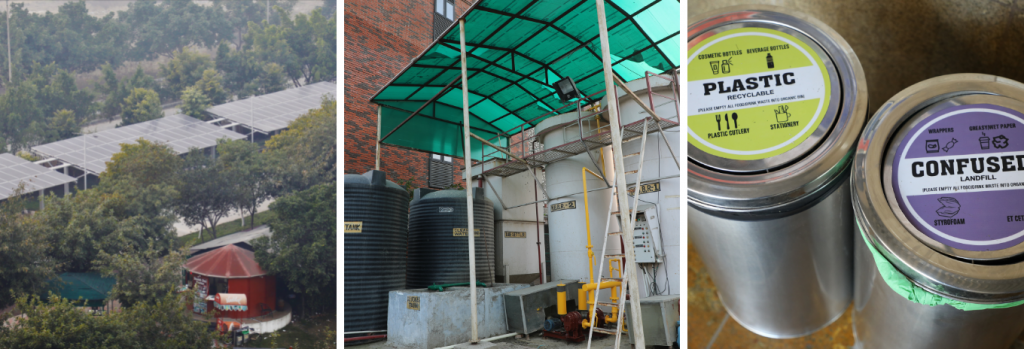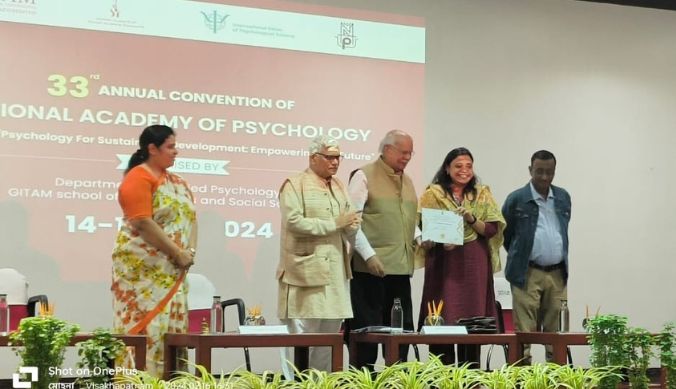The Ashoka Experiment: Setting the Benchmark for Sustainable Campuses
Dr. Rajni Kaushik, Assistant Director for Sustainability Practice & Skills at Ashoka University, writes on the university’s efforts towards sustainable and eco-friendly practices to become a model for other institutions to adapt and replicate
Universal pledges to address the climate emergency have brought about a paradigm shift in embracing sustainable development. It is only when local solutions are identified that such efforts will be successful. Educational opportunities can help people become fully functioning members of society who find meaning and develop their potential.
It thus becomes imperative to shift towards more sustainable and eco-friendly practices as a way of living while understanding and recognizing the contribution that higher educational institutions can make towards achieving Sustainable Development Goals.
Universities are ideally positioned to experiment, evaluate, educate, and develop strategic plans in order to bring about the necessary changes in implementing sustainability initiatives ~ both in mindsets as well as on the ground.
The ‘Towards Sustainability at Ashoka University’ project at the Centre for Climate Change and Sustainability (3CS) is designed to establish the university as a role model in India. Our actions will focus on three crucial building blocks of our campus ─ infrastructure, teaching, and communication ─ to involve students, staff, faculty, and community members in observing, asking questions, and developing sustainable initiatives to improve Ashoka’s environmental, economic, and social performances.
Infrastructure
One, the project will incorporate sustainability values across all aspects of the campus, including planning, construction, governance, operations, research, education, and public outreach.
The project aims to develop a framework called ‘Sustainable Campus Readiness’ to assess the sustainability level of existing processes across the various critical components of Ashoka campus sustainability. In moving towards a green campus culture at Ashoka University, this Plan-Do-Act-Check methodology will guide continuous improvement. A streamlined approach like this can be adapted by other universities and organizations to support the transformation of their campuses toward environmental sustainability.

Teaching
Through value-added cross-curricular courses, we also aim to help students build various skills and values aligned with sustainability. The goal is that they are able to take these lessons beyond the campus, and can continue to apply them in the careers they choose to pursue.
Communication
The project also aims to engage with the student community at Ashoka on sustainability. To build a culture of sustainability across the Ashoka community, 3CS launched the LiveGreen@Ashoka Initiative. This initiative was launched in collaboration with students’ Ashoka University Society for Sustainable Development Goals (AU SDG SOC) and Centre for Social and Behaviour Change (CSBC) at Ashoka. The aim is to provide students with a platform to present ideas and technological solutions to environmental challenges in and around Ashoka through interactive activities and campaigns. 3CS will facilitate this initiative, working with the students and staff to create awareness on environmental challenges and solutions at Ashoka.

Through a ‘Sustainability Ambassadors’ programme, to be launched under this Initiative, students would directly participate in the planning and implementation of activities aimed at exploring innovative operational and behavioural interventions. This initiative will serve as a strong support towards our Sustainability Action Plan, communications and outreach through activities enabling Ashoka University to become a more sustainable community.
Coming up
Some of the upcoming activities planned under this initiative are:
- ‘Know Your Campus’ Series – to create awareness about our carbon footprint, food waste generated, biodiversity, existing policies, and ongoing operational projects for responsible and efficient use of our resources.
- Campaigns for campus sustainability – ‘Plastic-Free’, ‘Zero Food Waste’, and ‘Recycle Right’
- Technological interventions for sustainable campus operations – e-waste recycling, menstrual waste recycling, and food waste recycling, and smart e-toilets for construction workers.
Scaling up for the future
Ashoka University is also a participating institution of the Delhi Research Implementation and Innovation (DRIIV) initiative launched by the Principal Scientific Advisor (PSA) to the Government of India. The goals of DRIIV align significantly with that of 3CS, specifically in the areas of Effective Education, Solid Waste Management, Air pollution, and Water Security. Additionally, DRIIV also brings together several organisations under a single umbrella to establish synergistic collaborations, engage and share subject matter expertise, share resources, and develop innovative solutions. Through this network, we can also share lessons and scale up ideas resulting from the project.
The ‘Towards Sustainability at Ashoka University’ project will establish the university as a pioneer in campus sustainability and an example for other universities to emulate.











